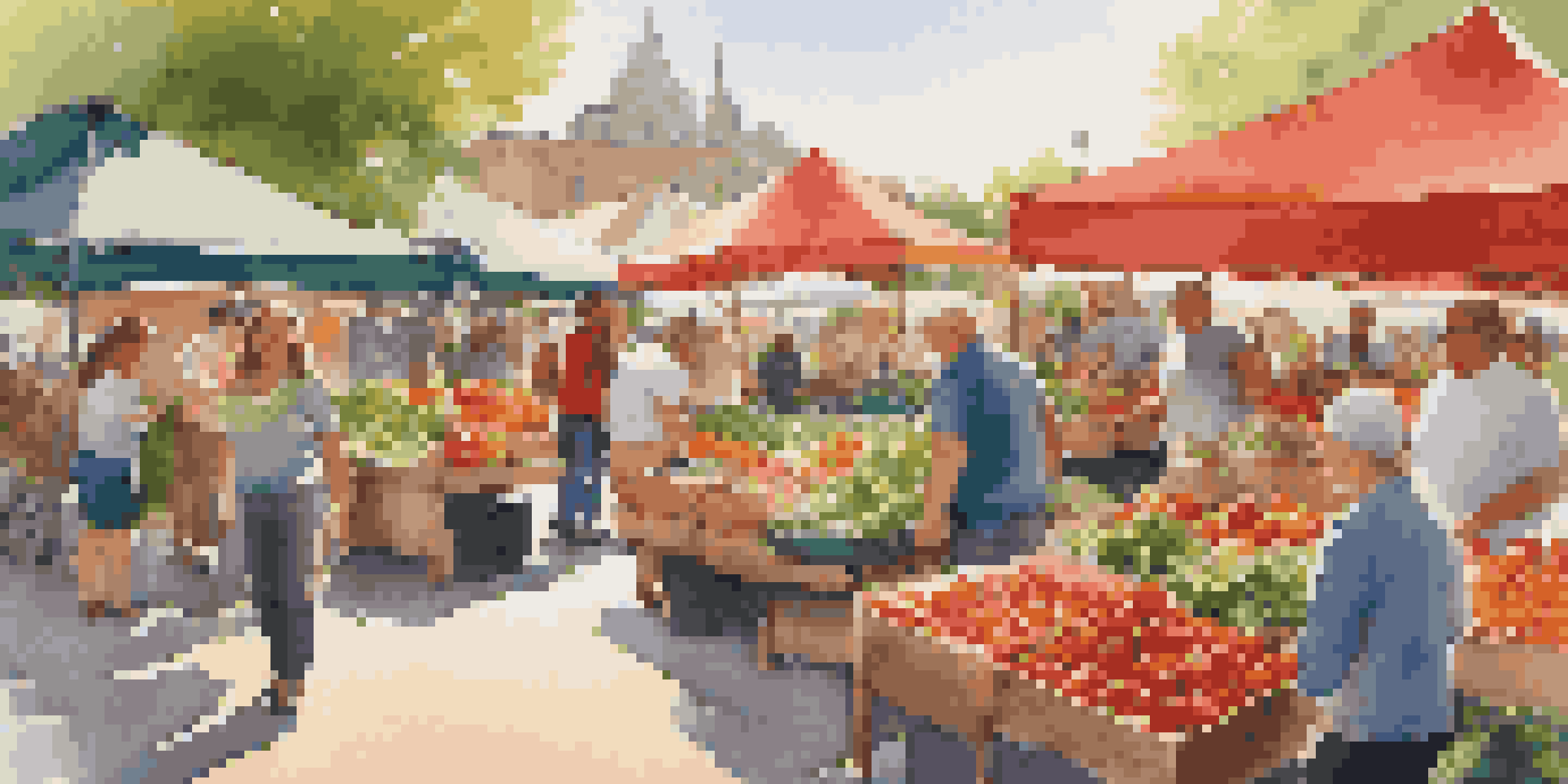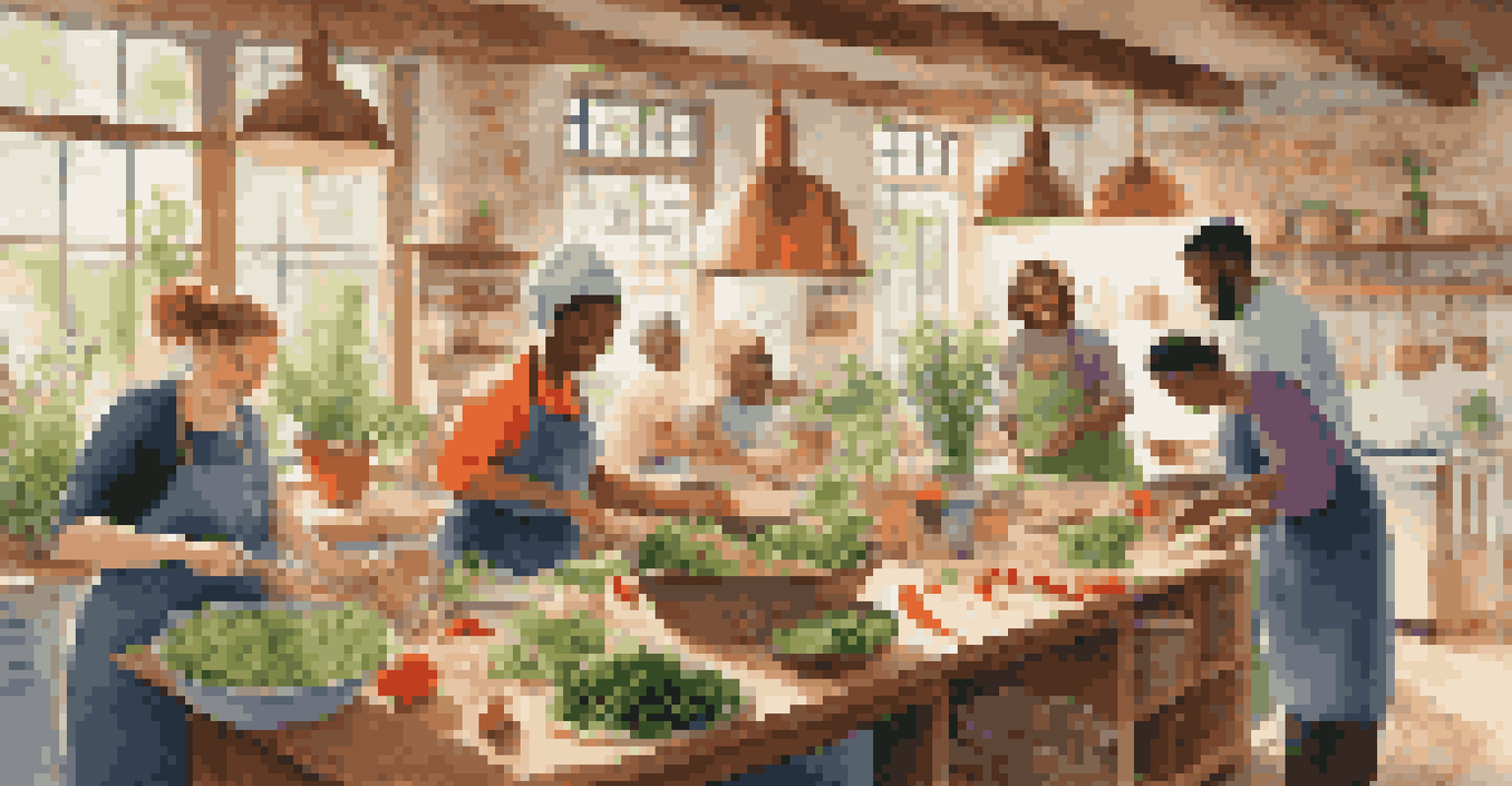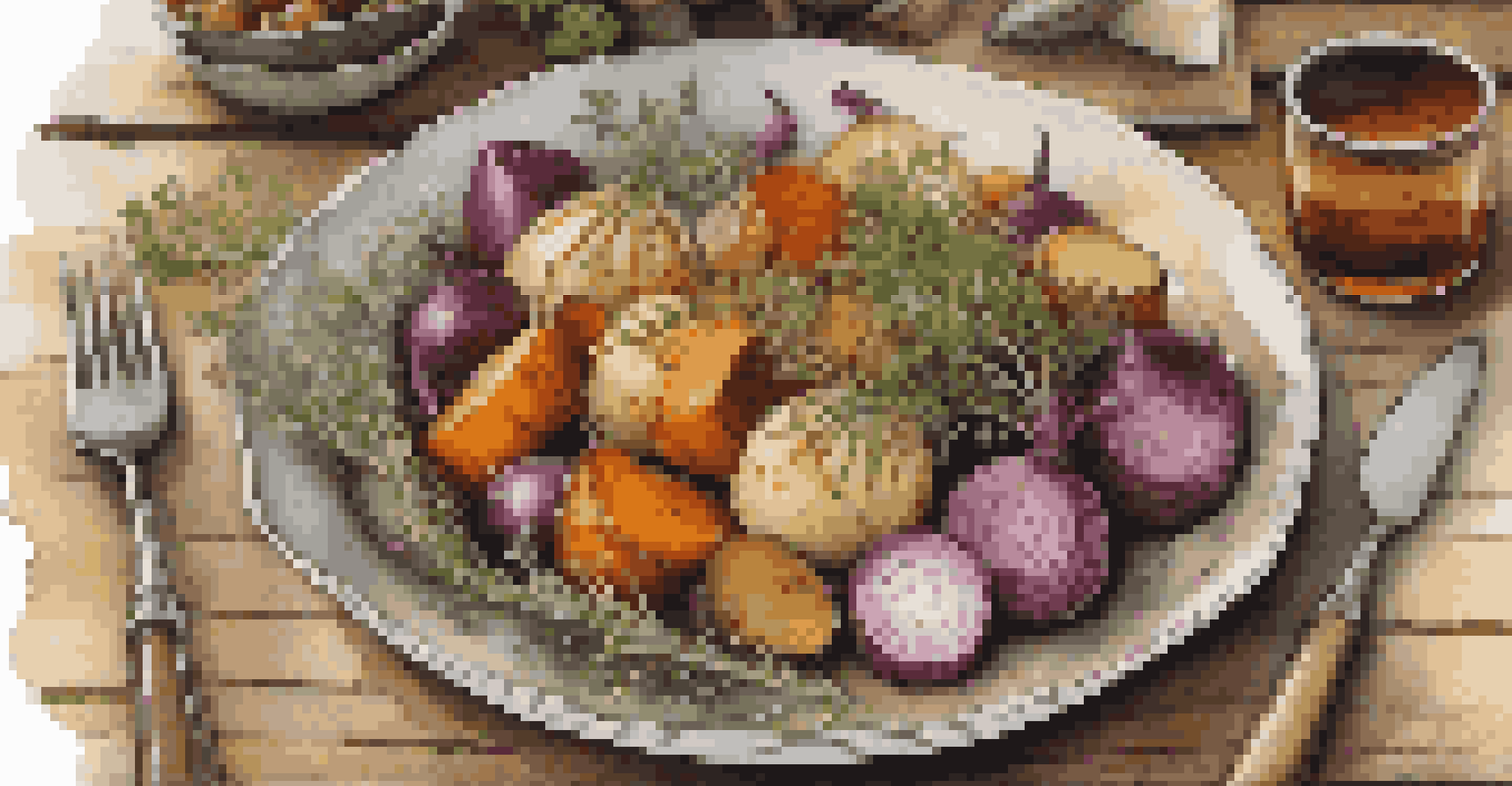Seasonal Cooking Workshops: Embrace Fresh Ingredients Year-Round

What Are Seasonal Cooking Workshops?
Seasonal cooking workshops are interactive classes focused on preparing dishes using fresh, local ingredients that change with the seasons. These workshops not only teach recipes but also emphasize the importance of seasonality in cooking, making meals more vibrant and flavorful. Imagine whipping up a summer salad with tomatoes just plucked from the vine or a hearty winter stew with root vegetables harvested from nearby farms. By participating, you can deepen your appreciation for the natural cycles of food and cooking.
The best way to predict the future is to create it.
In these workshops, participants often learn from skilled chefs who are passionate about seasonal ingredients. They provide tips on sourcing the freshest produce and highlight the benefits of cooking with what's in season. This knowledge can transform your approach to meal prep and inspire creativity in the kitchen, making cooking a more enjoyable experience.
Additionally, many of these workshops incorporate hands-on cooking sessions, allowing you to apply what you've learned in real-time. This practical experience helps solidify your understanding of seasonal cooking techniques while also fostering a sense of community among participants. You might leave with new friends, a full stomach, and the confidence to explore seasonal flavors in your own kitchen.
Why Choose Seasonal Ingredients?
Opting for seasonal ingredients is not just about flavor; it also promotes sustainability. When you choose what's in season, you’re supporting local farmers and reducing the environmental impact associated with long-distance food transportation. For example, enjoying fresh strawberries in June means you’re likely consuming produce that’s been grown nearby, which is fresher and tastier than imported options.

Moreover, seasonal ingredients are often more affordable due to their abundance during certain times of the year. This economic advantage allows you to create delicious meals without breaking the bank. Think about how much more flavorful a ripe peach tastes in the summer compared to a bland one in winter; choosing seasonal produce can elevate your dishes significantly.
Benefits of Seasonal Ingredients
Choosing seasonal ingredients enhances flavor, supports local farmers, and promotes sustainability.
Lastly, cooking with seasonal ingredients encourages culinary creativity. Each season brings unique flavors and textures, prompting you to experiment with different cooking methods and recipes. Whether it's the zesty herbs of spring or the warming spices of autumn, embracing seasonal ingredients can make your cooking experience both exciting and rewarding.
The Health Benefits of Seasonal Eating
Eating seasonally isn't just good for the planet; it's also beneficial for your health. Seasonal produce is often harvested at its peak ripeness, meaning it contains more nutrients and antioxidants than out-of-season options. For instance, tomatoes are high in vitamin C and lycopene when eaten during their natural growing season, contributing to better overall health.
You are what you eat, so don't be fast, cheap, easy, or fake.
Moreover, seasonal foods tend to have fewer preservatives and chemicals, as they don’t require long storage times. Freshness is key when it comes to nutrition, and seasonal eating ensures you’re getting the best quality ingredients. Think of it as a direct line to nature—when you eat what's in season, you’re nourishing your body with wholesome, vibrant food.
In addition, seasonal cooking workshops often focus on preparing meals that highlight these health benefits, teaching you how to create balanced dishes that promote well-being. By integrating more seasonal ingredients into your diet, you can enhance your energy levels and overall vitality, making you feel more connected to the changing seasons.
How to Find Seasonal Ingredients
Finding seasonal ingredients can be a fun adventure! Farmers' markets are a great place to start, as they typically feature local produce that reflects the current season. Visiting your local market not only helps you discover what's available but also allows you to connect with farmers and learn about their growing practices.
Another option is to join a Community Supported Agriculture (CSA) program, where you receive a box of seasonal produce directly from a local farm. This can be a fantastic way to try new fruits and vegetables you might not typically buy. Plus, it encourages you to learn new recipes and cooking techniques as you work with whatever is in your box each week.
Health Advantages of Seasonal Eating
Eating seasonally provides fresher, nutrient-rich produce that supports overall health and well-being.
Lastly, many grocery stores now highlight seasonal produce, especially in the produce section. Look for signs or dedicated displays that showcase what's currently in season. By being proactive and exploring different sources, you’ll broaden your culinary horizons and enjoy the freshest ingredients available.
Learning New Skills in Workshops
One of the biggest advantages of attending seasonal cooking workshops is the opportunity to learn new cooking skills. From knife techniques to flavor pairing, these workshops often cover a variety of topics that can elevate your culinary abilities. A skilled instructor will guide you through each step, ensuring you understand not just the 'how' but also the 'why' behind each technique.
Participating in these workshops also encourages you to step out of your comfort zone. You may find yourself trying ingredients or cooking methods you've never considered before. For example, you might learn how to properly blanch vegetables to maintain their color and nutrients, or how to create a vibrant herb pesto using seasonal greens.
Moreover, these workshops often foster a collaborative environment where participants can share their experiences and tips. This peer learning can be incredibly valuable, as you might discover new perspectives or techniques that you hadn’t thought of before. It’s all about building confidence and creativity in the kitchen, which can transform how you approach cooking.
Creating Community Through Cooking
Seasonal cooking workshops are not just about food; they create a sense of community among participants. Cooking together fosters conversation and connection, allowing you to bond over shared experiences and culinary challenges. This communal atmosphere can make the learning process more enjoyable and memorable.
In addition, many workshops encourage participants to share their favorite recipes or cooking tips, creating a rich exchange of ideas. You might learn a new technique from someone else’s experience or discover a hidden gem of a recipe that you can’t wait to try at home. This collaborative spirit enriches the overall experience and often leads to lasting friendships.
Community through Cooking Workshops
Seasonal cooking workshops foster community by encouraging collaboration and connection among participants.
After the workshop, many participants continue to connect, forming cooking clubs or meet-ups to explore seasonal recipes together. This ongoing relationship helps reinforce what you’ve learned while also making cooking a social event. Plus, cooking with friends or family can be a delightful way to share the joys of seasonal eating and inspire one another.
Bringing Seasonal Cooking Home
Once you've experienced a seasonal cooking workshop, the next step is to bring that knowledge home. Start by creating a seasonal meal plan that incorporates the ingredients you've learned about. This not only makes grocery shopping easier but also ensures you’re enjoying the freshest flavors available.
You can also experiment with the recipes you learned in the workshop, adjusting them based on what’s currently in season. This flexibility allows you to customize meals to your taste while keeping them fresh and exciting. For instance, if you learned a summer vegetable ratatouille, think about how you can adapt it with autumn squash or winter root vegetables.

Finally, continue to explore new cooking techniques and ingredients by participating in more workshops or cooking classes. The culinary world is vast, and there's always something new to learn. By staying engaged and curious, you’ll keep your cooking skills sharp and your meals deliciously seasonal year-round.